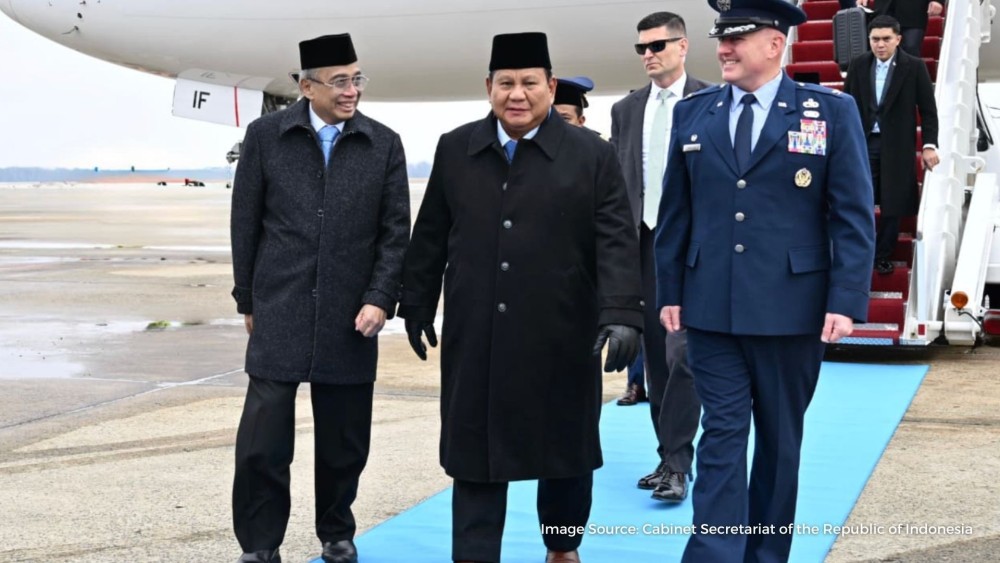Indonesia’s Digital Economy Still on Growth Track
09 Dec 2024

On November 14, Indonesia played host to Jensen Huang, CEO of Nvidia, the world's most valuable company as of October 2024, with a market valuation reaching USD 3.53 trillion.
His visit came as part of Indonesia AI Day 2024 – an event organized by Jakarta-based telecommunications company Indosat Ooredoo Hutchison – in the hopes of accelerating AI technology development in Indonesia.
During his visit, Mr. Huang met with Indonesian Minister of Communications and Digital Affairs Meutya Hafid to discuss Nvidia's planned expansion in AI investments within the country, including the establishment of a USD 200 million AI development center in Surakarta, Central Java, in partnership with Indosat, Google, and Singapore-based Northstar. This center is expected to position Indonesia as a player in Nvidia's growing AI network in Southeast Asia.
Huang's participation underscored Nvidia's commitment to supporting Indonesia's technological advancement and AI sovereignty. It also underscores the increasing global attention on Indonesia's digital transformation, which remains firmly on a growth trajectory.
The nation’s digital economy, already the largest in Southeast Asia, is projected to reach USD 90 billion in gross merchandise value (GMV) by the end of 2024, according to the latest e-Conomy SEA report by Google, Temasek, and Bain & Company.
This marks a 13% year-on-year increase, a rebound from the slower 6% growth seen in 2023. "Indonesia’s digital economy has grown more than three times over the past six years," noted Veronica Utami, Google Indonesia’s country director, as quoted by The Jakarta Post during a press briefing on November 13.
Indonesia’s Overall Digital Economy (GMV, in USD Bn)
|
Year |
GMV (Change, y-o-y) |
|
2018 |
27 |
|
2022 |
76 (+181%) |
|
2023 |
80(+6%) |
|
2024 |
90 (+13%) |
|
2030 (f) |
200-360 |
Source: e-Conomy SEA 2024
E-commerce continues to dominate as the primary contributor to Indonesia’s GMV, estimated at USD 65 billion in 2024. Platforms like Shopee, Lazada, and YouTube Shopping drive this growth, with live commerce now representing one-fifth of e-commerce GMV in Southeast Asia, a dramatic rise from less than 5% in 2022.
Prospective Sectors and Emerging Trends
Beyond e-commerce, fintech and artificial intelligence (AI) represent burgeoning sectors with significant growth potential. QR payments have gained traction in Indonesia, driven by cross-border payment initiatives like QRIS, which facilitates seamless transactions with neighboring countries like Singapore. Peer-to-peer (P2P) lending is also thriving, with loans doubling from USD 2 billion to USD 4 billion between 2022 and 2024, while maintaining non-performing loan (NPL) rates at a low 2-3%.
Artificial intelligence, another promising frontier, is drawing substantial investment. The nation's data center capacity is set to grow from 202 MW to 743 MW in the coming years, catering to AI-driven applications in education, marketing, and logistics. Nvidia’s plans to establish an AI school in Central Java further highlight the sector's potential to cultivate local talent and innovation.
However, challenges persist. Regulatory hurdles, data privacy concerns under the Personal Data Protection Law, and uneven internet penetration—30.51% in rural areas compared to 69.49% in urban centers—highlight the need for inclusive digital policies. Addressing the digital divide and improving digital literacy remain crucial to sustaining growth.
Indonesia’s Internet Penetration (In %)
|
Year |
GMV |
|
2018 |
64.80 |
|
2020 |
73.70 |
|
2022 |
77.01 |
|
2023 |
78.19 |
|
2024 |
79.50 |
Source: APJII Internet Survey 2024
Major Investments Signal Confidence
Recent high-profile deals signal long-term confidence. In December 2024, Apple is expected to commit USD 1 billion to build a manufacturing plant in Indonesia, aligning with local content regulations.
Additionally, Microsoft pledged USD 1.7 billion to develop cloud and AI infrastructure, while China and Indonesia has inked USD 10 billion worth of agreements focusing on digital technology and new energy vehicles.
The government has also taken proactive measures to support growth. Initiatives like the "Making Indonesia 4.0" roadmap and the "100 Smart Cities" program aim to enhance digital infrastructure and innovation. The launch of the SATRIA-1 satellite exemplifies efforts to bridge connectivity gaps in remote areas, supporting meaningful digital transformation.
Challenges and the Path Forward
While Indonesia’s digital economy is thriving, it currently faces funding challenges. The first half of 2024 saw a dip in private investment to USD 300 million from USD 400 million in the same period last year. Investor caution persists amid global economic volatility, though optimism prevails for the medium term. "It will probably take six to 12 months to see more confidence in whether the bounce back will happen," observed Aadarsh Baijal, partner at Bain & Company.
Experts emphasize the importance of fostering trust and regulatory clarity to attract further investment. The Indonesian government is already working to improve cybersecurity measures and streamline public procurement processes, addressing concerns raised by businesses.
Looking ahead, the focus on smaller cities and rural areas offers significant growth potential. Expanding high-speed internet and fostering digital literacy are key strategies to ensure inclusivity. "Digital talent must be strengthened because every incoming investment must contribute to enhancing the skills of the local workforce," noted Deputy Minister of Communication and Digital Affairs Nezar Patria.
Indonesia's digital economy is projected to surpass USD 130 billion by 2025, driven by its tech-savvy population and robust economic foundation. With initiatives like AI-driven innovations, fintech expansion, and the development of advanced digital infrastructure, the nation is poised to solidify its leadership in Southeast Asia's digital landscape.
As Jensen Huang remarked during AI Day, "The next chapter of innovation belongs to those who can harness the power of AI and digital technology." For Indonesia, that chapter has only just begun.








